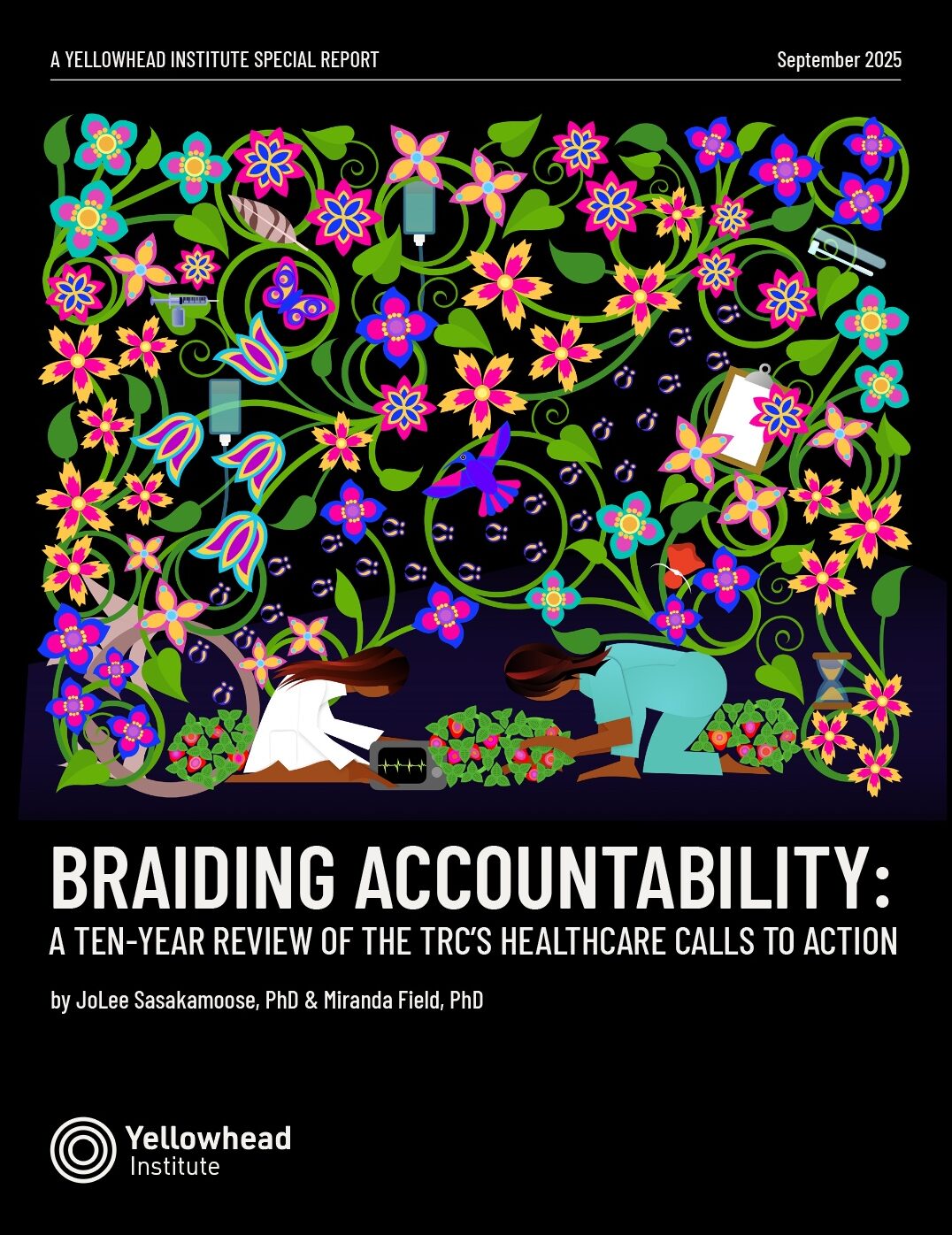- About
- Research
-
-
- Special Reports & Features
- Braiding Accountability: A Ten-Year Review of the TRC’s Healthcare Calls to Action
- Buried Burdens: The True Costs of Liquified Natural Gas (LNG) Ownership
- Pretendians and Publications: The Problem and Solutions to Redface Research
- Pinasunniq: Reflections on a Northern Indigenous Economy
- From Risk to Resilience: Indigenous Alternatives to Climate Risk Assessment in Canada
- Twenty-Five Years of Gladue: Indigenous ‘Over-Incarceration’ & the Failure of the Criminal Justice System on the Grand River
- Calls to Action Accountability: A 2023 Status Update on Reconciliation
- View all reports.
- Special Reports & Features
-
-
- Yellowhead School
-
- The Treaty Map
- LIBRARY
- Submissions
- Donate
Ten years after the Truth and Reconciliation Commission issued its Calls to Action, what has been achieved in healthcare?
Calls to Action 18–24 challenge governments and health authorities to acknowledge colonial harms, close health gaps, recognize Indigenous approaches to healing, and transform healthcare systems. This report assesses public health authority responses to Calls 18–24 through an environmental scan of provincial, territorial, and federal actions from April 2024 to April 2025.
Applying the Braiding Framework for Health Accountability, developed from the Cultural Responsiveness Framework, we assessed progress along three interrelated strands: restoring Indigenous wellness systems, establishing ethical space for engagement, and transforming mainstream service delivery. Grounded in relational accountability, this approach offers a culturally responsive lens to evaluate whether actions reflect meaningful structural change.
Unfortunately, our findings show limited progress across all three strands. Health authorities often rely on land acknowledgments, cultural safety training, or project-based initiatives while avoiding commitments that transfer power or resources to Indigenous Peoples. Reporting tends to focus on descriptive activities rather than Indigenous-defined outcomes, and rarely acknowledges institutional complicity in colonial harm.
Indigenous-led healing centres remain underfunded, jurisdictional disputes continue, and Indigenous health education is inconsistently embedded in medical and nursing curricula. Although promising initiatives exist, system-wide transformation is lacking. Reconciliation in health will require Indigenous-led accountability frameworks, co-governance, sustainable and flexible funding, transparent reporting based on Indigenous-defined indicators, and full implementation of UNDRIPA obligations. Without these shifts, reconciliation risks remaining rhetorical rather than transformative. In fact, we find Canada’s health systems have perfected performative reconciliation.
KEY QUESTIONS
Ten years after the TRC, why do health authorities continue to substitute symbolic gestures for structural change, and what does this reveal about the limits of reconciliation in Canada’s health systems?
What possibilities for reconciliation emerge when accountability, funding, and governance are led by Indigenous Peoples, rather than constrained by health authorities’ performative commitments?
This analysis reaffirms what Indigenous Peoples have articulated for generations and what the TRC formalized nearly a decade ago: symbolic gestures divorced from structural accountability do not constitute reconciliation. Genuine transformation requires the redistribution of power, resources, and decision-making authority.
- JoLee Sasakamoose and Miranda Field

